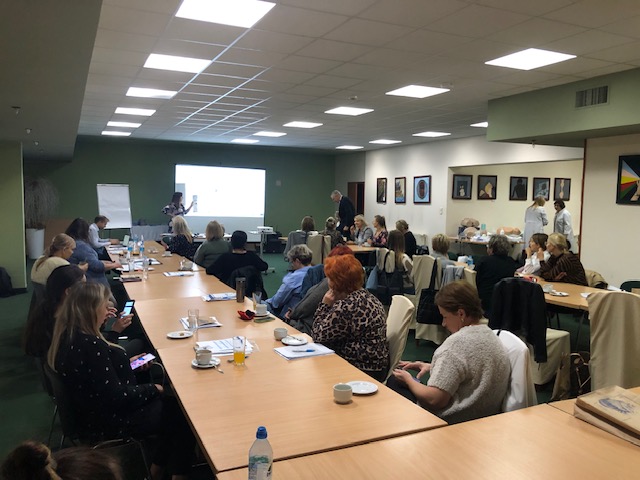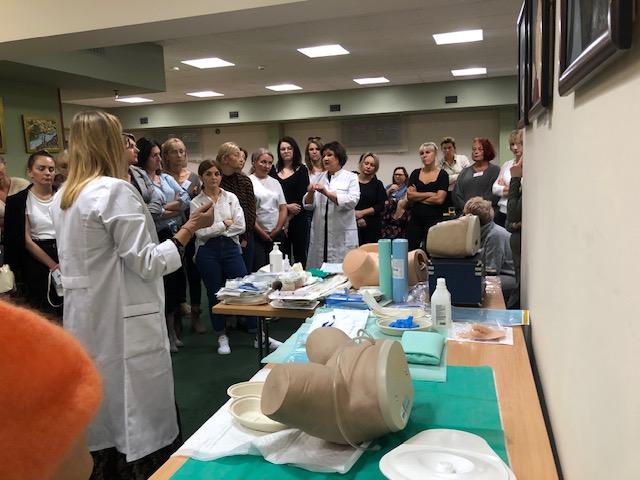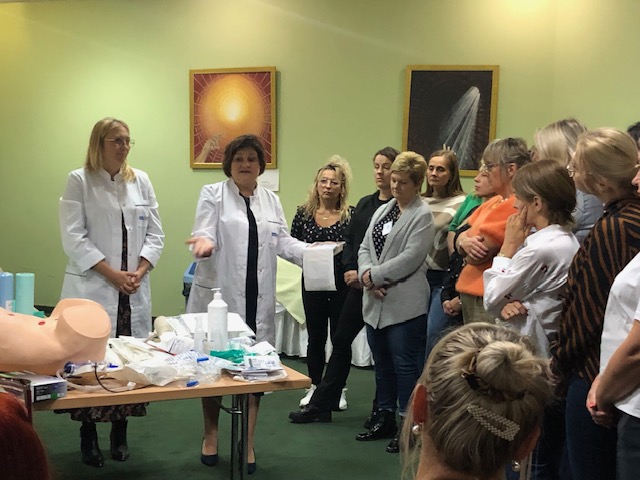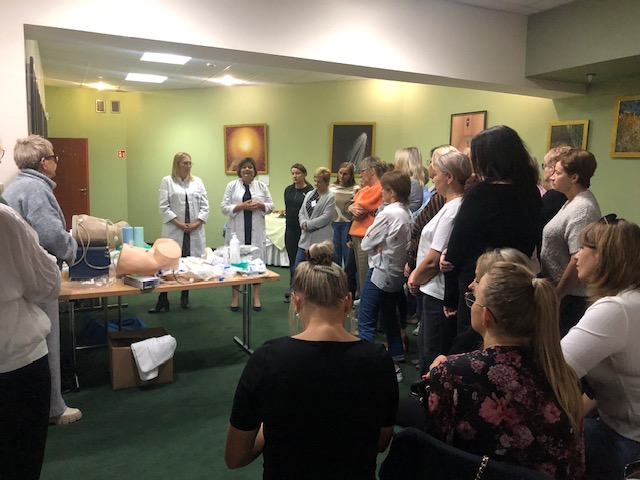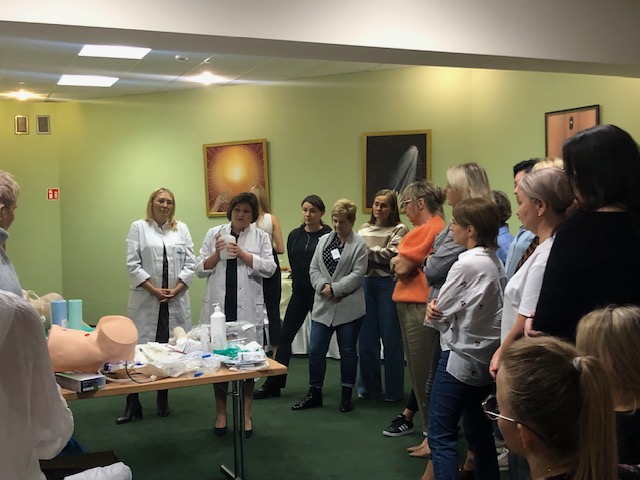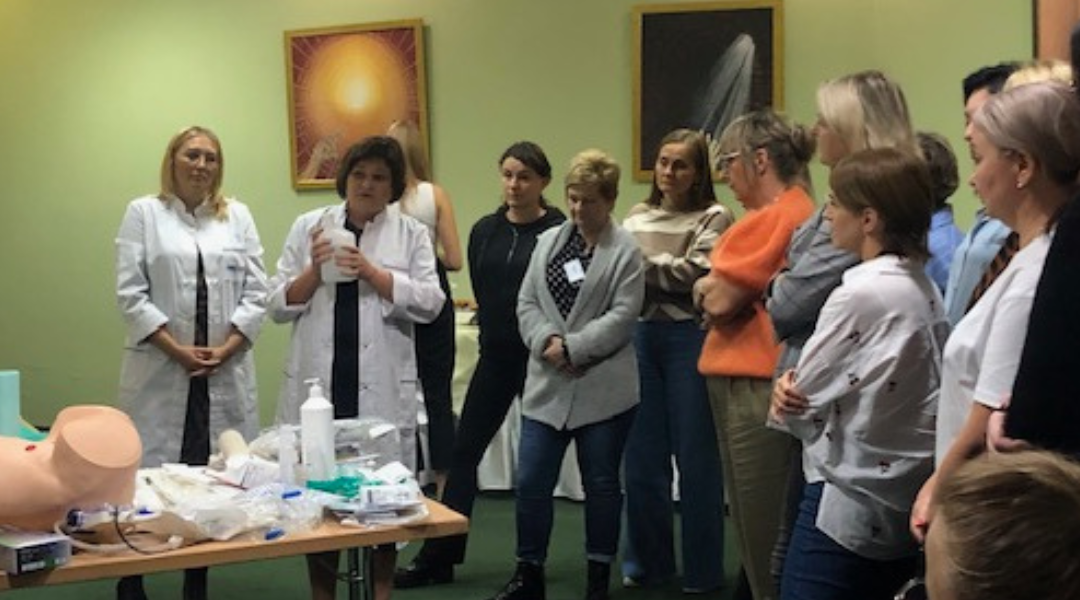As the IMAGINE Project continues its mission to combat antimicrobial resistance (AMR) and enhance infection prevention in nursing homes across Europe, we are excited to announce the start of our interventions in Poland this week. Scheduled for October 10th-11th, the intervention marks the first in a series of workshops taking place in eight European countries. These sessions are designed to equip healthcare professionals in long-term care facilities with the tools and knowledge they need to improve infection prevention and control (IPC) practices, particularly in the context of urinary tract infections (UTIs), a common health concern among nursing home residents.
The Medical University of Lodz will lead the upcoming intervention, providing essential training on infection prevention and control practices for nursing home staff.
Workshop Goals and Structure
The two-day intervention in Poland will gather healthcare professionals (HCPs) from twelve nursing homes, where they will participate in a comprehensive workshop. The primary focus of this intervention is to enhance nursing home care in the area of IPC and antimicrobial optimisation. During the intervention the results of the first audit conducted earlier this year, which assessed current infection control practices and antibiotic prescribing patterns in these facilities, will be discussed, exploring ways of improvement, together with presenting the IMAGINE tools, created to help HCPs to implement IMAGINE strategy in their nursing homes. This audit, based on the Audit Project Odense (APO) method, forms the backbone of the IMAGINE Project’s approach, offering valuable baseline data that will guide improvements in IPC.
During the workshop, participants will:
Receive feedback on the audit findings, identifying strengths and areas for improvement in their current practices.
- Set goals for implementing IPC measures and more appropriate antibiotic prescribing based on the audit results, expert input, and EU AMR Guidelines.
- Participate in expert-led training on infection prevention techniques and appropriate diagnostic approaches for UTIs, ensuring that staff are equipped with the latest evidence-based practices.
- Access educational materials on infection control and antimicrobial stewardship, which will be shared not only with HCPs but also with residents and their families, fostering a culture of awareness and support around infection prevention.
The IMAGINE Project’s Evidence-Based Approach
The intervention in Poland is part of a larger, before-and-after study conducted in each of the eight participating countries: Denmark, Greece, Hungary, Lithuania, Poland, Slovakia, Slovenia, and Spain. Each nursing home team—comprising nurses, doctors, health care assistants, and health care helpers—has been actively involved in tracking and managing UTIs and IPC measures over an initial three-month period. This data collection phase allows the IMAGINE team to establish a clear picture of current practices before implementing the multifaceted intervention.
By repeating the audit after the intervention, we will be able to measure the effectiveness of the training and adjustments made. Specifically, we will assess prescription appropriateness, UTI diagnosis and IPC elements, to evaluate the improvements in the nursing homes.
Why This Matters
Nursing homes are crucial in the battle against AMR, as their residents are often more vulnerable to infections. Inappropriate antibiotic use is a primary driver of AMR, and targeted interventions like the one in Poland are essential to address this issue. By focusing on both education and practical implementation, the IMAGINE Project seeks to foster sustainable changes that will protect the health of nursing home residents across Europe.
Here are some images of how the sessions were in Poland!
